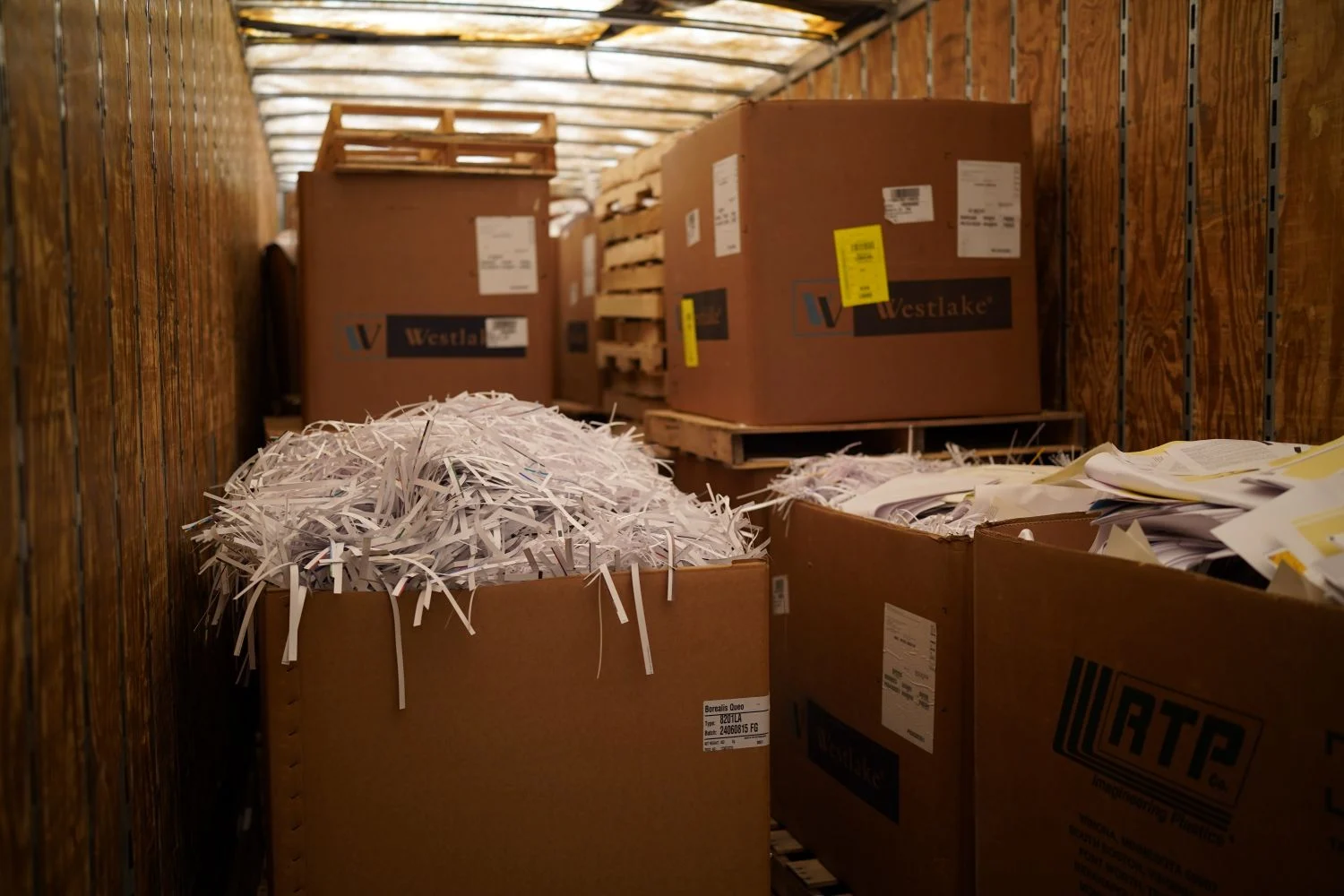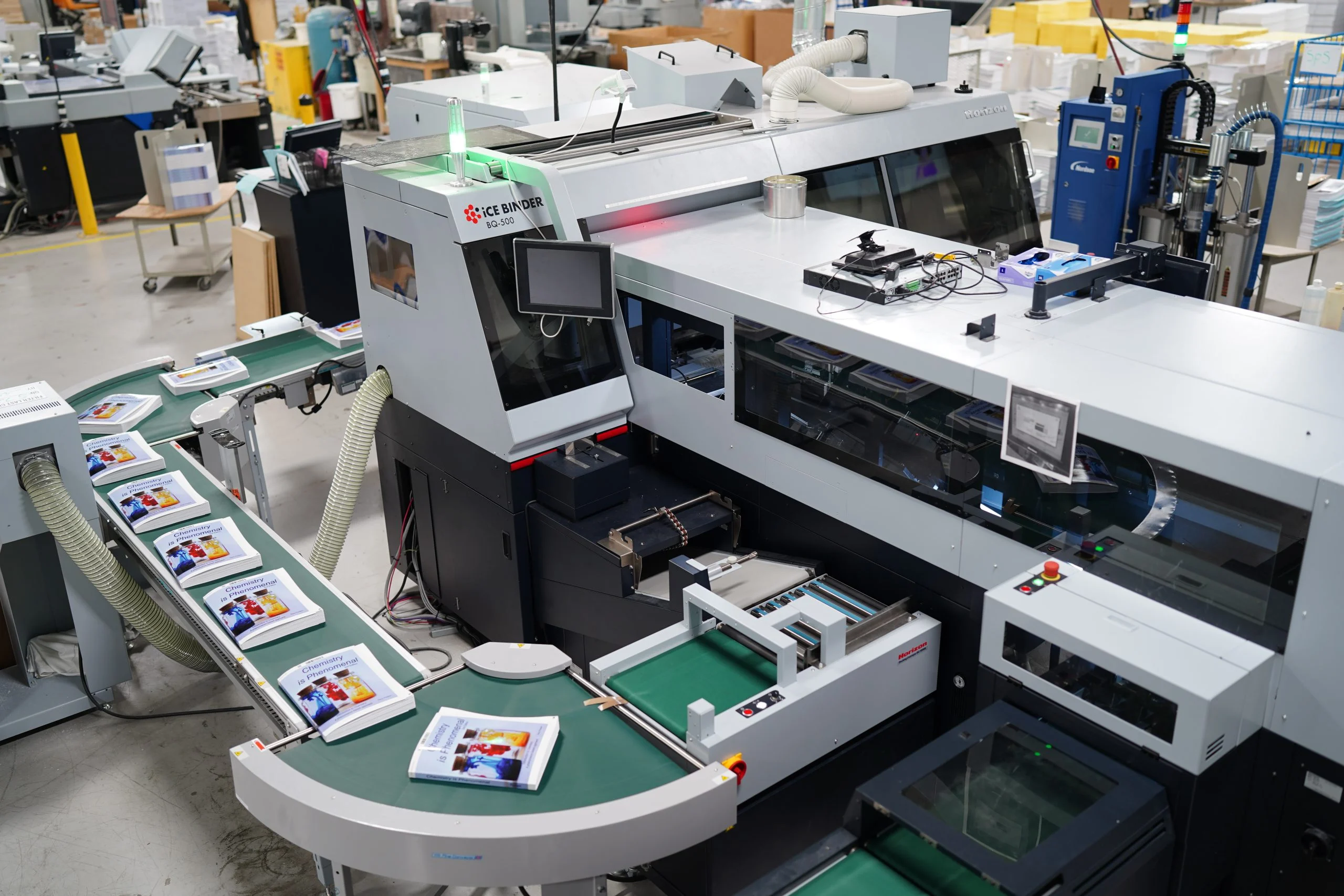As a faith-based organization, you understand the importance of printed materials for worship and education, from workbooks and curricula to hymnals, catechisms, prayer books and sacred texts. Ensuring these print projects are produced in an eco-friendly way is not only an environmental imperative, but also an expression of stewardship, working to protect the earth and your community.
This blog explores eco-conscious printing choices that faith-based publishers can make to combat carbon emissions and other negative environmental impacts, all while upholding quality and mission. We’ll look at sustainable paper and ink options, efficient printing practices and the benefits these choices bring to both the planet and the people you serve.
Sustainable Paper Options: Recycled Paper
One of the most impactful choices a publisher can make is in the paper itself. Traditionally, printing has been associated with deforestation, but today recycled and responsibly sourced papers offer a greener path. Using recycled paper, made from post-consumer waste, helps reduce demand for virgin wood pulp and saves resources. By diverting used paper from landfills, recycled stocks give a second chance to fibers, cutting down on waste and lowering the overall carbon footprint of print projects.
Many printers offer recycled paper options. For example, Walsworth incorporates recycled material whenever possible, even using recycled boards for hardcover book covers and packaging with at least 35% post-consumer fiber. This kind of commitment ensures that a large portion of the paper in your hymnals or workbooks is not coming straight from fresh-cut trees.
FSC® and SFI®-Certified Paper
Equally important is choosing paper from responsibly managed forests. Look for certifications like the Forest Stewardship Council® (FSC®) or the Sustainable Forestry Initiative® (SFI®) on your paper options. These certifications guarantee that the paper’s wood fiber comes from forests managed with rigorous standards for environmental and social responsibility. By selecting FSC®-certified paper, faith-based publishers contribute to sustainable forestry practices that protect ecosystems and wildlife for future generations.
In practical terms, an FSC® or SFI® logo means the trees harvested for your books are replaced or allowed to regrow, biodiversity is respected and harmful practices, like clear-cutting old-growth forests or using certain chemicals, are avoided. Many congregations specifically want paper that reflects care for creation, so using certified stocks is a tangible way to communicate ecological responsibility to your community.
Vegetable-Based Inks and Green Print Materials
The choice of ink and other materials in printing can significantly affect the environmental impact of your publications. Traditional inks are petroleum-based, relying on nonrenewable resources and emitting volatile organic compounds (VOCs) as they dry. These VOCs contribute to air pollution and smog. An eco-conscious alternative is vegetable-based inks such as those made from soy, corn or other plant oils. These inks offer a more sustainable and safer solution.
Many printers, including Walsworth, have adopted vibrant vegetable-based inks that are both high quality and environmentally friendly. These inks are derived from renewable resources and are biodegradable, meaning they can naturally decompose after use. They also emit far fewer VOCs, resulting in lower overall emissions and a healthier work environment.
Beyond inks, look for other eco-friendly materials and processes. Modern presses can use aluminum printing plates that are recycled after each print run, instead of single-use plastic or film. Walsworth, for example, recycles nearly 1 million pounds of aluminum printing plates every year, along with tens of millions of pounds of paper and fiber products that can be reused in future printing projects.
Efficient Printing Practices and Waste Reduction
Eco-conscious printing is not just about what goes into the book; it’s also about how the book is produced. Efficient production practices can greatly reduce waste, energy use and carbon emissions. One key approach is working with printers who prioritize waste reduction and recycling at every step. For example, at Walsworth’s facilities, every scrap of paper trimmed from a religious workbook and every bit of excess binding material is carefully collected and recycled, rather than thrown away.
Such diligent recycling efforts mean that millions of pounds of materials get a second life instead of entering landfills. In fact, Walsworth alone recycles about 30 million pounds of paper and fiber each year, a testament to how industry practices can minimize environmental footprints. As a publisher, you can ask your printer about recycling programs and policies. Do they recycle leftover paper, metal plates and ink waste? The best partners will have concrete answers.
Benefits for the Earth and Your Faith Community
Embracing eco-conscious printing choices yields a dual reward: environmental benefits and positive impacts for your faith community and customers. The environmental upsides are clear. By using FSC®-certified or recycled paper, you help preserve forests and biodiversity. Every FSC® purchase supports forestry that keeps ecosystems intact and even helps prevent carbon-releasing events like wildfires through responsible management.
By using vegetable-based inks and reducing chemical use, you cut down on air pollution and make recycling easier on the back end. Waste reduction and efficient presses translate directly into fewer greenhouse gas emissions – less energy consumed, less waste decomposing or incinerated. All these measures contribute to combating climate change and protecting the Earth for future generations.
Support Your Message With Sustainable Print
Across faith traditions, there is a calling to act as good stewards of our resources and care for the world around us. For religious publishers, every choice in the printing process is an opportunity to live out that calling.
By selecting environmentally responsible paper, using plant-based inks, minimizing waste and partnering with printers committed to sustainability, faith-based organizations can reduce the carbon emissions and ecological impacts of their print projects. These eco-conscious choices ensure that producing the materials that nurture faith does not come at the expense of the Earth. Instead, it becomes a dual service – nourishing minds and spirits while also safeguarding our home.
If you’d like to learn more about how Walsworth supports faith-based publishers with sustainable print solutions, get in touch with us today.
* This article was developed with assistance from OpenAI’s GPT-o3 Pro Deep Research large language AI model.






